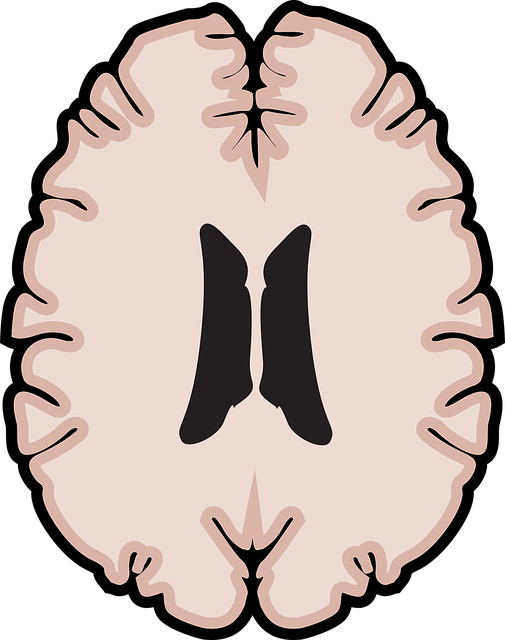Northglenn Pain Management Therapy employs comprehensive risk assessment tools to identify and mitigate mental health hazards, prioritizing client safety. By evaluating past traumas, current stressors, and mental illness, therapists predict adverse outcomes and empower individuals with strategies like journaling and self-esteem improvement. Proactive risk management enables positive changes, fostering fulfillment despite challenges. Ethical considerations mandate integrating self-care practices like mindfulness for therapist well-being, enhancing support for clients' healing journeys. A robust framework, aligned with Mind Over Matter principles, includes regular risk assessments, case management, and crisis intervention plans tailored to individual needs, ensuring optimal outcomes and a safe environment.
Mental health professionals strive to provide safe, effective care, but managing risks is an essential component of their practice. This article explores the critical aspects of risk assessment tailored to Northglenn Pain Management Therapy (NPMT). We delve into understanding risk assessment, identifying potential hazards within NPMT settings, and discussing ethical obligations. Additionally, it covers implementing risk mitigation strategies, continuous monitoring, and adapting care plans for optimal client outcomes. Each section provides valuable insights for professionals navigating the complex landscape of mental health practice.
- Understanding Risk Assessment in Mental Health Practice
- Identifying Potential Risks in Northglenn Pain Management Therapy
- Ethical Considerations for Mental Health Professionals
- Implementing Effective Risk Mitigation Strategies
- Continuous Monitoring and Adaptation in Client Care
Understanding Risk Assessment in Mental Health Practice

In the realm of mental health practice, risk assessment is a crucial tool that helps professionals identify and mitigate potential hazards within their clients’ lives. This process involves a systematic evaluation of various factors, including past traumas, current stressors, and underlying mental illness, to predict and prevent adverse outcomes. For instance, at Northglenn Pain Management Therapy, therapists employ risk assessment techniques to offer tailored support, ensuring the safety and well-being of each client. By understanding clients’ vulnerabilities, therapists can develop effective treatment plans that address not only the presenting issues but also potential triggers for escalation.
Risk assessment in mental health goes beyond identifying vulnerabilities; it’s about empowering individuals with strategies to manage their mental wellness. This includes guiding clients through journaling exercises to track moods and thoughts, fostering self-esteem improvement, and implementing stigma reduction efforts. Through proactive risk management, professionals can facilitate positive changes, helping clients lead fulfilling lives despite the challenges they face.
Identifying Potential Risks in Northglenn Pain Management Therapy

In the context of Northglenn Pain Management Therapy, identifying potential risks is paramount to ensure patient safety and well-being. Mental health professionals working in this domain must be vigilant about the unique challenges that come with treating chronic pain, which can significantly impact an individual’s mental state. Depression prevention is a key concern; prolonged pain can lead to feelings of despair and hopelessness, exacerbating existing mental health conditions or precipitating new ones. Therefore, therapists should integrate Self-Care Routine Development for Better Mental Health as a core component of their treatment plans.
Encouraging patients to maintain Mental Wellness Journaling Exercises can serve as a powerful tool during Northglenn Pain Management Therapy. This practice allows individuals to track their emotional state, pain levels, and coping strategies, fostering a greater sense of self-awareness and agency over their mental health. By incorporating these journaling exercises, therapists can proactively identify signs of deteriorating mental wellness and intervene appropriately, thereby mitigating potential risks and enhancing overall treatment outcomes.
Ethical Considerations for Mental Health Professionals

Mental health professionals, especially those practicing in a place like Northglenn Pain Management Therapy, face unique ethical dilemmas that demand careful consideration. As they navigate complex client relationships, they must prioritize their own well-being to provide effective care. This includes cultivating strong self-awareness exercises and incorporating stress reduction methods, such as mindfulness meditation, to mitigate the potential for burnout and maintain professional integrity. By prioritizing personal mental health practices, therapists can better support their clients’ journeys towards healing.
Implementing Effective Risk Mitigation Strategies

Implementing effective risk mitigation strategies is a cornerstone of responsible mental health practice, especially in areas like Northglenn Pain Management Therapy. It involves a proactive approach to anticipate and navigate potential risks, ensuring client safety and well-being. Mental health professionals must go beyond basic compliance and adopt a comprehensive framework that aligns with Mind Over Matter principles. This includes regular risk assessments, thorough case management, and the development of individualized crisis intervention plans based on each client’s unique needs and history.
Risk Management Planning for Mental Health Professionals should incorporate strategies tailored to specific challenges, such as managing complex cases or dealing with clients at high risk of self-harm. By integrating Crisis Intervention Guidance into their practices, professionals can swiftly respond to escalating situations, de-escalate conflicts, and offer appropriate support. This proactive approach not only enhances client outcomes but also fosters a safe and nurturing environment for individuals seeking mental health services.
Continuous Monitoring and Adaptation in Client Care

Mental health professionals must embrace a dynamic approach to client care, one that incorporates continuous monitoring and adaptation. This ongoing process involves regularly evaluating clients’ progress, adjusting treatment plans based on emerging needs, and integrating new research and best practices into practice. At Northglenn Pain Management Therapy, for instance, therapists stay updated with the latest Mental Health Education Programs Design and Stress Reduction Methods to offer comprehensive care tailored to each individual’s unique challenges and goals.
By fostering a flexible mindset, professionals can ensure they provide effective support. This adaptability is crucial in managing the evolving nature of mental health conditions and accommodating clients’ changing circumstances. Regular monitoring also enables professionals to identify potential risks early on, allowing for prompt interventions and promoting positive outcomes through effective Stress Management strategies.
Mental health professionals play a vital role in helping clients navigate challenging situations, but this comes with inherent risks. By understanding risk assessment methods, identifying potential dangers like those seen in Northglenn Pain Management Therapy cases, and adhering to ethical guidelines, practitioners can effectively mitigate risks. Implementing robust strategies and continually monitoring client care ensures a safe and supportive environment. This holistic approach fosters successful outcomes while prioritizing the well-being of both professionals and clients.














